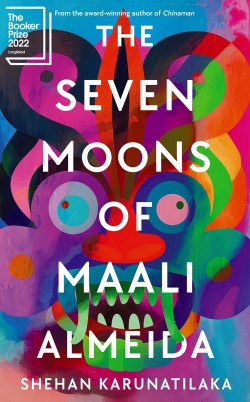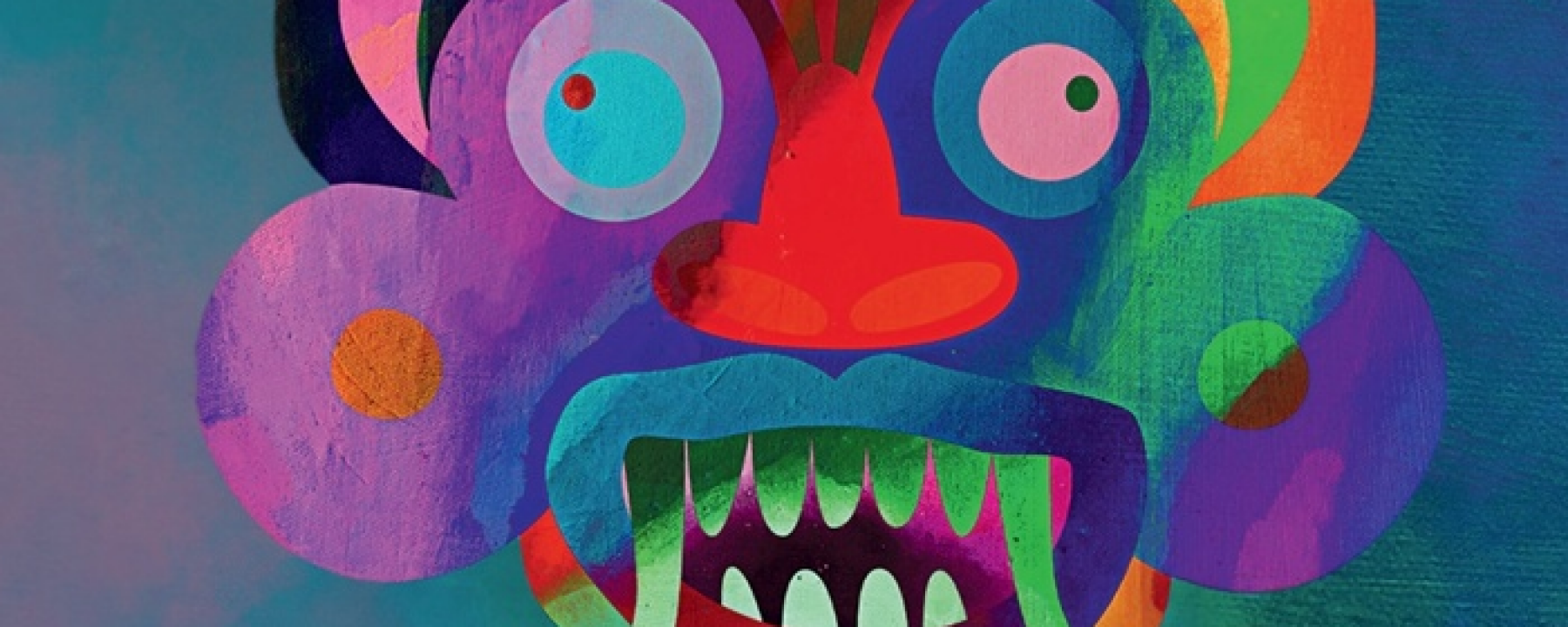Winner of the Booker Prize 2022.
Kaleidoscopic journey through purgatory.
Death, which echoes Stranger Things and the work of Salman Rushdie.
The Seven Moons of Maali Almeida
Shehan Karunatilaka
Shehan Karunatilaka's newest book is definitely worthy of readers' attention. As it usually goes with titles nominated for the Booker Prize, the dominant axis of the story is a distinctive storytelling style and an untraditional form.
I would like to start the review with a short list of Booker Prize winners and their nationalities.
Anna Burns – Milkman (Northern Ireland)
Bernardine Evaristo – Girl, Women, Other (Great Britain)
Margaret Atwood – The Testaments (Canada)
Stuart Douglas – Shuggie Bain (Scotland/USA)
Damon Galgut – The Promise (South Africa)
I chose some of the more recent titles mainly to show a trend – using one’s geographic and cultural background as the centerpiece of their storytelling.
To say, however, that it’s “enough” to write a novel that’s closely connected to your roots and then just wait for the prize to arrive would be a gross oversimplification of the matter. The Booker Prize, to me, reflects a storytelling distinctiveness combined with an unusual setting and atypical form. Be it the brutal rawness of Shuggie Bain, the heavy stream of thoughts in Milkman, or the decline of the white family at the end of apartheid in The Promise.
The Seven Moons of Maali Almeida does not deviate from this trend. The signature aspect of this dynamic story is that its main character is, in fact, quite dead and exists somewhere between the land of the living and the afterlife. Moreover, the entire narrative is divided into relatively short chapters and is written in the second person, which you don’t come across often in modern literature. To make the story more realistic and relevant, it is set in corrupt Colomba (Sri Lanka) in the 1980s and the main character is gay, a gambler and, as I have already mentioned, dead (or a ghost, if you will).
You know very little about this In Between place, though you have learned to harness winds. Not all spirits know how, which is why you find many of them confined to dingy rooms banging their heads against imagined walls.
This by itself fulfills all the “requirements” to deserve an award. What’s interesting is that it works. The story flows and meanders through life events, with flashbacks coming at just the right time, which gives the story an even more plastic feel. Maali’s wanderings in the afterlife full of rottenness, repugnance, and deformity do not slow down the narrative. Quite the opposite. Layer by layer, he uncovers what is really going on. But even in the tensest scenes, there is a certain lightness of spirit. More than once it even made me laugh.
“You have one response for those who believe Colombo to be overcrowded: wait till you see it with ghosts.”
Humor ultimately is a common thread of the book. It hedges the somewhat impersonal second person narrative and it also helps to partially lighten the brutal topic of ethnic cleansing, which echoes throughout the entire book. Maali is, after all, a photographer, which is reflected in the goal of his afterlife quest. He bets everything on the photographic negatives hidden in his inheritance that possess the power to overthrow the government.
Do animals get an afterlife? Or is their punishment to be reborn as human?
I wouldn’t be afraid to put Karunatilaka in the company of masters of magical realism such as Rushdie or Marquéz. I also wouldn’t hesitate to compare The Seven Moons of Maali Almeida to the great Russian classics. After all, this work is not too distant from Gogol’s Dead Souls or Bulgakov’s Master and Margarita. Absurd scenes full of brutality and horror are presented with pathos, but also with humor and sarcasm that just hit the reader.
At the morgue, the ghosts gather around the tables and grumble. The bones have been placed on long strips of cellophane, two box air-conditioners are brought in to cool the room, and five men wear white coats and crouch over the bones and pick at them silver utensils.
Finally, I would like to bring your attention to the cover of the book, which is beautifully designed and creatively alludes to the colorful story inside. As part of my research of the Booker Prize, I also opted for an audio version to accompany my reading and can vouch for its ability to deepen your experience of the novel. Though the pace of Shivantha Wijesinha’s narration tends to be slower, it nevertheless captures you from the very first sentence and won't let you go. The audio version brings Colombo to life!
In case you’d be interested in a different view on this book, check out a review written by my Slovak colleagues: https://www.megabooks.sk/magazin-megabooks/vitaz-booker-prize-2022-shehan-karunatilaka.
What about you? Did any title from the recent Booker Prize longlists capture your attention?
Translated by Gabriela Ježková


















